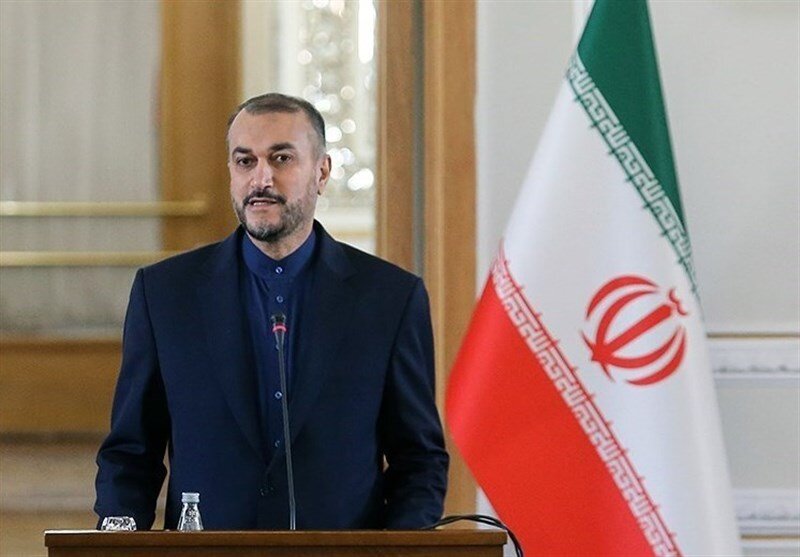Amir Abdollahian briefs parliamentary committee on Vienna talks

TEHRAN — Foreign Minister Hossein Amir Abdollahian attended a special meeting of the parliament’s National Security and Foreign Policy Committee on Sunday night to present a report about the process of the Vienna talks and the impact of the anti-Iran resolution at the IAEA Board of Governors, the parliamentary committee spokesman announced on Monday.
“This meeting was held in the presence of Foreign Minister Amir Abdollahian, who presented a report on the negotiation process and the impact of the anti-Iran resolution on the negotiations,” Mahmoud Abbaszadeh Meshkini said.
Meshkini argued that the Vienna negotiations have their own separate direction but predicted that the IAEA board resolution will affect them.
The Vienna talks, which have been stalemated since March, are intended to lift illegal sanctions against Iran by reviving the 2015 nuclear deal, officially called the Joint Comprehensive Plan of Action (JCPOA).
“We did not expect a resolution to be issued contrary to the agreement between Iran and the IAEA, as the Islamic Republic of Iran entered into a dialogue with the International Atomic Energy Agency in earnest and in good faith. However, this resolution does not have strong and specific content and seems to be a recommendation that is not important to us,” he noted.
Abbaszadeh Meshkini added that the IAEA board issued the resolution to put on display a gesture of authority and convergence with the West and the United States, therefore it “has no legal or international” value.
Last week, the tense relations between Iran and the West took a new turn after the main interlocutors of Iran in the Vienna talks pushed jointly for the censure resolution. It was the first move of its kind in two years.
The resolution was adopted in the 35-nation board with 30 votes in favor, two against, and three abstentions. China and Russia, two parties to the JCPOA, voted against the resolution.
Though mild in language and unbinding in nature, the resolution elicited harsh criticism from Iranian officials at various levels. The government responded by turning off IAEA surveillance cameras and spinning a new set of advanced centrifuges. President Ebrahim Raisi, speaking in the name of God and the people, vowed resistance.
And in Parliament, there was an uproar on Sunday. A group of 260 lawmakers issued a joint statement denouncing the resolution as a political move influenced by Israeli peddling. They said the IAEA and its director-general personally fell under Israel’s sway. They referred to Rafael Grossi’s visit to Israel as indicative of his slanted reporting.
Iranian Foreign Ministry spokesman Saeed Khatibzadeh on Monday censured Grossi for visiting Israel, a regime that is widely believed to have about 90 nuclear weapons and refused to sign to Nuclear Non-Proliferation Treaty.
“He (Grossi) met the wrong people at the wrong time and in the wrong place,” Khatibzadeh told a regular news briefing.
In phone talks with UN Secretary-General Antonio Guterres on Saturday night, Foreign Minister Amir Abdollahian has called the resolution “hasty and politically motivated.”
The Iranian criticism of the West, in general, laid bare Tehran’s strategy for coping with the possible rise in tensions in the coming weeks and months. A strategy of resistance and defiance can be extrapolated from Iranian statements.
The strategy in question perfectly fits into the broad contours of what the Leader of the Islamic Revolution, Ayatollah Seyed Ali Khamenei, has stressed in his public meetings including the Saturday one with Venezuelan President Nicolas Maduro.
During the meeting with President Maduro and his entourage, the Leader of the Islamic Revolution referred to the successful experiences of Iran and Venezuela in standing up to U.S.'s intense pressures and hybrid warfare.
“The only way to confront the U.S. is through resistance and persistence,” he said, according to a readout published by khamenei.ir.
“The resistance of the Iranian nation brought about the failure of their maximum pressure policy to such an extent that one of the prominent political officials of the United States recently used the term ‘abject failure’ in referring to this policy.”
